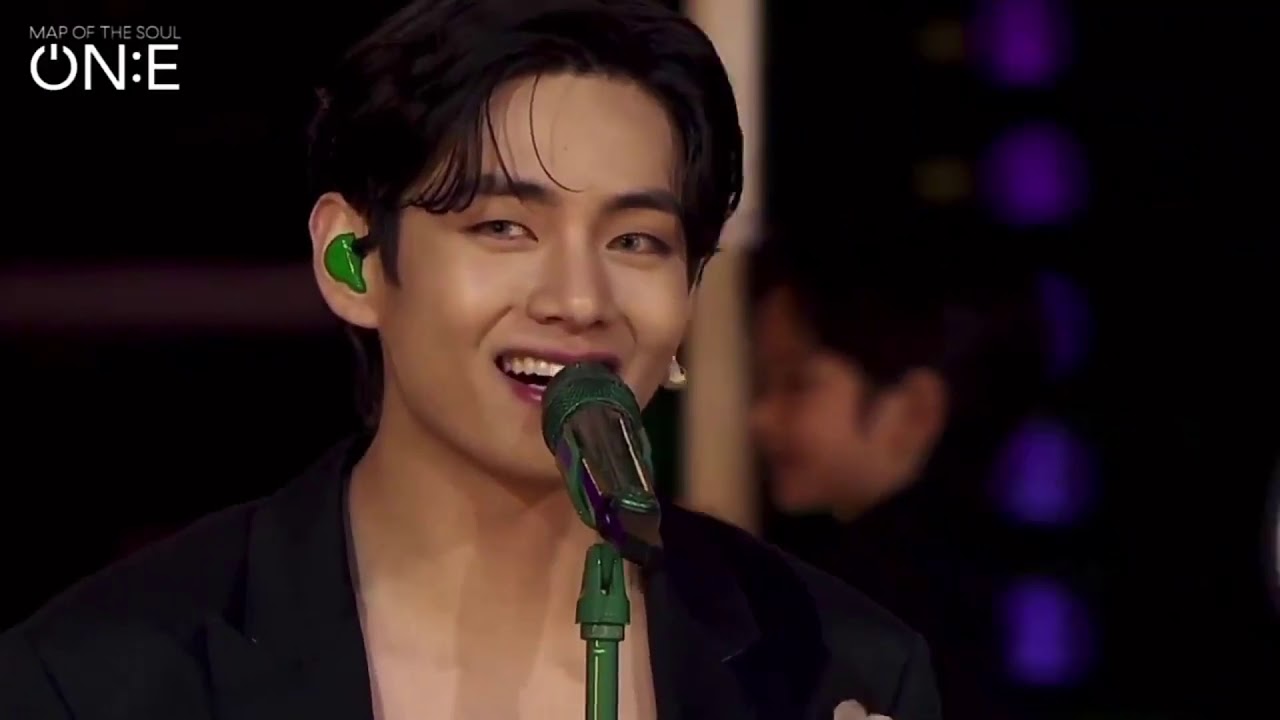A writer once said that each of us carries a crying child in a quiet corner of the heart. What does she mean? Even as we grow into adulthood, we keep an inner child—the figure for the painful memories of our younger selves—whose wounds can hold us fast. And the only one who can soothe and unshackle that child is our present, adult self.
In “Inner Child,” one of my favorite BTS songs, V speaks to the child in that corner, offering comfort and encouragement, asking him to stop dwelling on the cuts and bruises, because those setbacks and adversities became the stepping stones to the V we see today. Through this metaphor, V finally releases the shadow of bad memories that has kept him from fully savoring the fruits of his labor.
Akin to the modus operandi of “Zero O’Clock,” RM, collaborating with V, writes the lyrics in a conversational tone. But whereas RM addressed listeners directly in that song, here the present V addresses his younger self. As hyung and leader, RM has watched with loving concern as V grew from a timid boy with delicate sensibilities into a confident young man. His concern and his pride are tenderly present in every line. In a way, RM may also be speaking to his own younger self.
What I love about the song is that, however sad the premise sounds, it is a hymn of hope. It’s about making peace with a bitter past so you can build roads toward a brighter future. That you, yourself, can unbind yourself and heal your wounds. That you can change. When V belts “we gon’ change” in the chorus, he’s speaking not only to his younger and present selves, but to everyone who’s listening.
Here are a few of my favorite observations about the lyrics:
The first line of the first verse includes one of my favorite Korean expressions: “힘들었지 (hihm-deul-uht-jih) (it was tough, wasn’t it?).” I say this to my students all the time, after a test, a midterm, or a grueling assignment. Depending on intonation, it can become a question; either way, it is meant to soothe and affirm, to acknowledge how well someone has done in a stressful moment. I learned it from my mother, who said it to me after every baseball game I pitched, whether I gave up seven runs (my worst outing ever) or threw a shutout (which happened now and then): “아이고, 우리 아들. 힘들었지? 잘했어! (ah-ih-goh, woo-lih ah-deul. hihm-deul-uht-jih? jahl-hat-(s)uh!) (Oh, my son. It was tough, wasn’t it? You did well!)”
Also in the first verse, the current V tells his younger self that even though young V didn’t believe in galaxies, he (present V) “봐버렸는 걸 (bwah-buh-lyut-neun guhl) (I ended up seeing it)”—the silver galaxy. This mysterious astronomical image points both to the silver galaxy V once saw at an observatory (I’m confident it was the Sculptor Galaxy, NGC 253) and to the sea of ARMY bombs lighting up darkened stadiums during their concerts.
To make the flow clearer, here’s how the first verse moves (interpreted, not literally translated):
(current V to younger V)
Boy, we felt hopeless at the start, didn’t we,
our dreams as unreachable as those stars
we stared at night after night.
So who could blame you for not believing in galaxies?
(current V to himself)
But I have seen it,
the silver galaxy (the ARMY bombs).
(current V to younger V)
and how hard it must have been for you,
while I was madly chasing a dream
that seemed so far out of reach.
The chorus is one of my favorite passages on the album—perhaps the most poetic verse RM has written (again, interpreted, not literally translated):
아릿해와 그 여름날의 공기
너무 차갑던 잿빛 거리의 소리
숨을 마시고 네 문을 두드리네
(current V to himself, recalling June 13, 2013)
On a day of a smoldering sun
and oppressive summer air,
breathing in the callous hush
of a vast, ash-gray city,
(to younger V)
I drew a breath
and knocked on your door.
These are lines you could find in a poem by Shin Dong-yup, my favorite Korean poet. RM uses abstraction and rhetorical play to evoke BTS’s debut day: “차갑던 (cha-gahp-duhn) (cold)” signals not temperature but indifference—the city’s indifference to a kid with impossible dreams—while “소리 (soh-lih) (sound)” suggests atmosphere rather than literal noise.
I also love RM’s coinage “아릿해 (ah-liht-hae) (smoldering sun),” which deftly fuses the adjective “아릿하다 (ah-liht-hah-dah) (biting, stinging)” with “해 (hae) (sun)” to create “the sun that bites,” a bright, burning sun with stinging rays. When V first read the lyrics, he shyly asked RM what it meant. It is a reaction many K-ARMYs too shared when they heard the song. Moments like this are why I admire RM’s gifts as a writer.
Lyrics:
Verse 1:
Boy, back then,
It was tough.
Gazing at the unreachable stars,
Way up in the sky.
Back then, you
Didn’t believe in galaxies.
But I got to see it:
The silver galaxy.
You must have ached.
It must have been arduous,
Chasing after
The endless lights.
Chorus:
On a smoldering day with that summer air,
The sound of a callous, bleak city.
Taking a deep breath, I knocked on your door.
We gon’ change
We gon’ change
We gon’ change
We gon’ change
We gon’ change
Verse 2:
I can finally understand the you of yesterday.
The thorns in the blooming rose,
I want to hold you.
The kid with the smile,
Who laughed innocently,
I can’t help but laugh
Whenever I think of you back then.
Chorus:
On a smoldering day with that summer air,
The sound of a callous, bleak city
Taking a deep breath, I knocked on your door.
We gon’ change
We gon’ change
We gon’ change
We gon’ change
We gon’ change
Bridge:
Tonight,
If I extend my hands to reach you,
Would you hold them?
We’ll become one then.
You can then
Gaze at my galaxies
And welcome those stars.
The lights that reach
Your eyes show your present moment.
You’re my boy, my boy,
My boy, my boy, my boy.
Outro:
We gon’ change
We gon’ change
We gon’ change
We gon’ change
We gon’ change
We gon’ change
We gon’ change
We gon’ change

